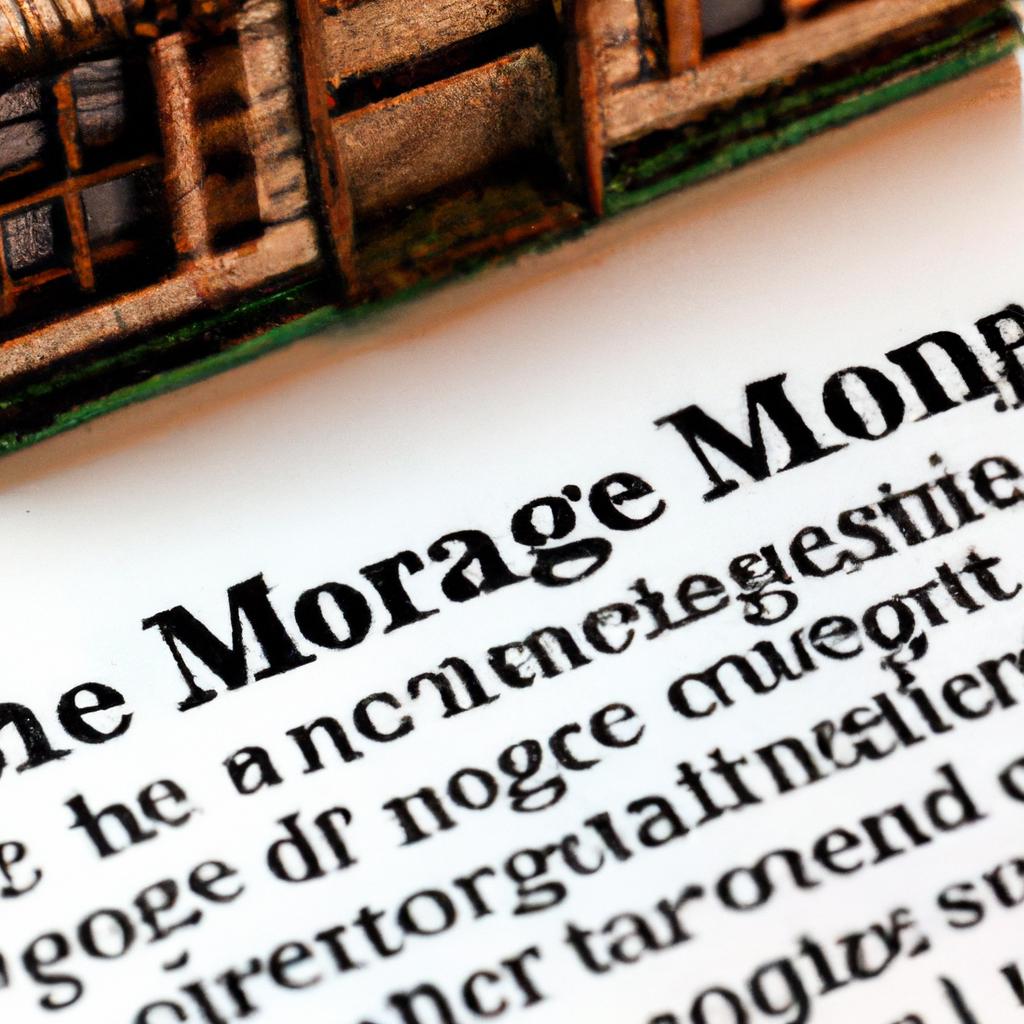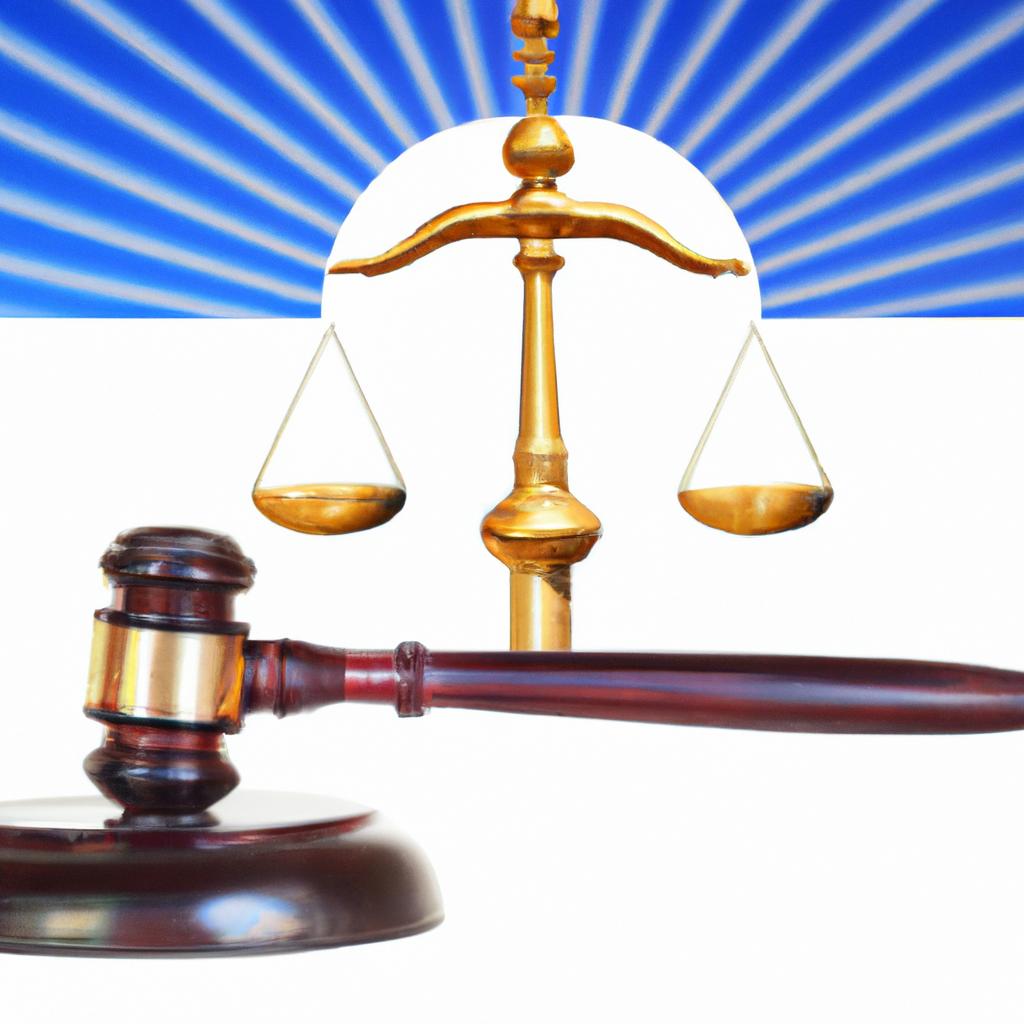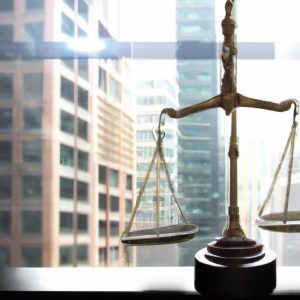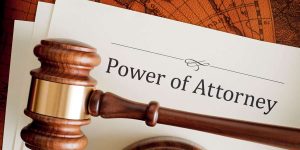As experienced attorneys at Morgan Legal Group in New York City, we understand that property ownership can sometimes lead to complex legal issues. One common question that arises is: what are your rights if your name is on a deed but not the mortgage? In this article, we will delve into the intricacies of this situation and provide you with the guidance needed to navigate the legal landscape surrounding property ownership and mortgages. Whether you find yourself in a similar predicament or simply seek to broaden your knowledge on real estate law, our expertise in estate planning, probate, elder law, Wills, and trusts will serve as a valuable resource in understanding your rights as a property owner.
Understanding the Legal Implications of Having Your Name on a Deed but Not the Mortgage
When your name is on a deed but not the mortgage, it is essential to understand the legal implications of such a situation. Having your name on a deed means that you have ownership rights to the property, while not being on the mortgage means that you do not have any financial responsibility for the loan. This arrangement can lead to complexities in terms of rights and obligations, particularly in cases of disputes or financial difficulties.
**In this scenario, it is crucial to be aware of the following rights and considerations:**
- **Ownership Rights:** You have a legal claim to the property as a co-owner, which means that you have the right to inhabit and use the property.
- **Financial Obligations:** You are not responsible for the mortgage payments, but if the primary borrower defaults on the loan, the lender can foreclose on the property, which may affect your ownership rights.
- **Liability:** Despite not being on the mortgage, you may still be held liable for certain aspects, such as property taxes, maintenance fees, or legal disputes related to the property.

Protecting Your Ownership Rights in the Property
If your name appears on the deed but not on the mortgage for a property, you still have ownership rights to that property. However, it’s important to understand the implications of this arrangement. Here are some key points to consider:
- Property Rights: Your name on the deed grants you legal ownership of the property, which means you have the right to possess, use, and transfer the property as you see fit.
- Liability: While you may not be responsible for the mortgage payments, you could still be at risk if the mortgage goes into default. It’s crucial to stay informed about the status of the mortgage and work with the mortgage holder to protect your interests.
| Ownership Rights on Deed | Legal Obligations |
|---|---|
| Your name on the deed | Ownership rights |
| Not on the mortgage | No financial obligation |

Navigating Potential Risks and Liabilities in Joint Ownership
When your name is on a deed but not the mortgage, you may have certain rights as a joint owner of the property. It’s important to understand these rights and potential liabilities that may come with joint ownership. Here are some key points to consider:
- Equity: As a joint owner on the deed, you have a legal interest in the property’s equity. This means that you may be entitled to a portion of the property’s value if it is sold or refinanced.
- Responsibility: Even if your name is not on the mortgage, you may still be liable for any obligations related to the property, such as property taxes, maintenance costs, or homeowner association fees.
| Scenario | Explanation |
|---|---|
| Property Sale | As a joint owner, you may be entitled to a portion of the proceeds from the sale of the property. |
| Foreclosure | If the mortgage goes into foreclosure, you may still be responsible for any remaining debt on the property. |

Consulting with a Knowledgeable Real Estate Attorney for Guidance and Protection
When your name is on a deed but not the mortgage, it is crucial to understand your rights and obligations in this unique situation. Consulting with a knowledgeable real estate attorney can provide you with the guidance and protection you need to navigate this complex legal landscape.
Some key considerations you may need to discuss with your attorney include:
- The impact of not being on the mortgage on your ability to sell the property
- Your liability for the mortgage debt if you are not a borrower
- Options for protecting your interests in the property
Q&A
Q: What are my rights if my name is on a deed but not the mortgage?
A: Having your name on a property deed but not on the mortgage can lead to certain questions about your rights and responsibilities. Here are some commonly asked questions to help clarify the situation.
Q: Do I have any ownership rights if my name is on the deed but not the mortgage?
A: Yes, having your name on the deed means you have legal ownership of the property. This gives you the right to occupy, sell, or transfer the property as you see fit.
Q: Can the lender foreclose on the property if my name is on the deed but not the mortgage?
A: While the lender generally cannot foreclose on the property if your name is only on the deed and not the mortgage, it’s important to stay current on any property taxes or homeowners’ association fees to avoid potential issues.
Q: Do I have any financial obligations if my name is on the deed but not the mortgage?
A: If your name is on the deed but not the mortgage, you generally do not have any financial obligations related to the mortgage. However, you may be responsible for maintenance costs, property taxes, and other expenses related to the property.
Q: Can I be removed from the deed if my name is on it but not the mortgage?
A: Removing someone from a property deed can be a complex legal process. If you wish to be removed from the deed, it’s important to consult with a real estate attorney to understand your options and the potential implications.
Q: Can I sell the property if my name is on the deed but not the mortgage?
A: Yes, having your name on the deed gives you the right to sell the property. However, it’s important to notify the lender and follow any necessary legal procedures to ensure a smooth transaction.
Q: What should I do if my name is on the deed but not the mortgage and there are disputes with the lender?
A: If you encounter disputes with the lender related to a property where your name is on the deed but not the mortgage, it’s crucial to seek legal advice promptly. A real estate attorney can help you understand your rights and options in such situations.
Closing Remarks
In conclusion, understanding your rights when your name is on a deed but not the mortgage is crucial in protecting your ownership interests in a property. By being knowledgeable about your legal rights and responsibilities, you can navigate any potential disputes or issues that may arise with confidence. Remember to always seek professional legal advice to ensure that your rights are being upheld and that you are fully informed of your options. Thank you for reading, and best of luck in asserting your ownership rights.
 As the saying goes, “home is where the heart is.” Owning a home is one of life’s biggest accomplishments, but it also comes with a significant financial responsibility. Paying off a mortgage can take years and requires careful planning and budgeting. But sometimes, homeownership can get complicated, especially when there are multiple parties involved in the property.
As the saying goes, “home is where the heart is.” Owning a home is one of life’s biggest accomplishments, but it also comes with a significant financial responsibility. Paying off a mortgage can take years and requires careful planning and budgeting. But sometimes, homeownership can get complicated, especially when there are multiple parties involved in the property.
One common scenario that can cause confusion and legal issues is when your name is on the deed, but not on the mortgage. This can happen for various reasons, such as marriage, divorce, or inheritance. As a homeowner, it’s crucial to understand your rights and responsibilities in this situation.
In this article, we will discuss everything you need to know about your rights if your name is on the deed but not on the mortgage. From understanding the difference between a deed and a mortgage, to your legal rights and obligations, and practical tips for handling this situation, we’ve got you covered.
What is a Deed and a Mortgage?
Before delving into the details of your rights, it’s essential to understand the difference between a deed and a mortgage.
A deed is a legal document that establishes ownership of a property. It transfers the ownership of the property from one party to another. A deed typically contains the names of the property’s owners, a description of the property, and the signature of the parties involved. Once a deed is signed, it becomes a legally binding document.
On the other hand, a mortgage is a loan taken out to purchase a property. It is an agreement between the borrower (mortgagor) and the lender (mortgagee). In this agreement, the borrower promises to repay the loan along with interest, and in return, the lender has the right to take possession of the property if the borrower fails to repay the loan.
It’s important to note that a deed and a mortgage are two separate legal documents. A person can be listed on the deed without being listed on the mortgage, and vice versa.
What Rights Do You Have if Your Name is on the Deed but Not the Mortgage?
As a homeowner, you may wonder what rights you have if your name is on the property deed but not listed on the mortgage. Here are some important rights that you need to be aware of.
1. You Have an Ownership Interest in the Property
Even if your name is not on the mortgage, your name on the deed means that you have a legal right to the property. This means that you have an ownership interest in the property and have the right to occupy and use the property as you see fit. You also have the right to sell or transfer your ownership interest in the property.
2. You Are Not Responsible for Repaying the Mortgage
One of the benefits of not being on the mortgage is that you are not legally obligated to repay the loan. In case of default or foreclosure, you are not responsible for repaying the mortgage. However, this also means that you will not be able to claim any interest or tax deductions on the mortgage.
3. You May Have Financial Benefits
Having your name on the deed can also bring some financial benefits. For instance, if the property value increases, you may receive a portion of the profits if the property is sold. Additionally, if the property generates rental income, you are entitled to a share of the profits.
What Are Your Obligations if Your Name is on the Deed but Not the Mortgage?
Along with the rights that come with being on the deed, there are also some obligations that you need to be aware of.
1. Paying Property Taxes
One of the primary responsibilities of property ownership is paying property taxes. As a co-owner of the property, you are legally responsible for paying your portion of the property taxes, even if you are not on the mortgage. Failure to pay property taxes can result in penalties and even the possibility of losing the property.
2. Maintaining the Property
Being on the deed also means that you must contribute to the maintenance and upkeep of the property. This includes regular repairs, renovations, and other necessary expenses. As a co-owner, you have a legal obligation to maintain the property and ensure it remains in good condition.
3. Potential Legal Liability
One potential downside of being on the deed is the potential legal liability that comes with it. If there are any legal issues with the property, such as code violations or lawsuits, you can be held legally responsible, even if you are not on the mortgage.
Practical Tips for Handling This Situation
If your name is on the deed but not the mortgage, it’s essential to take these practical tips into consideration to protect your rights and avoid any legal issues.
1. Understand Your Legal Rights and Obligations
The first step is to educate yourself about the legal implications of being on the deed but not the mortgage. It’s important to understand your rights and obligations fully to avoid any potential issues in the future.
2. Communicate with the Lender
If you find yourself in this situation, it’s essential to communicate openly with the lender. They may be willing to add your name to the mortgage to reflect your ownership interest in the property. Alternatively, you can work out a co-ownership agreement with the person on the mortgage to outline your financial responsibilities and share of profits.
3. Seek Legal Advice
If you have any concerns or questions, it’s always best to seek legal advice. A real estate lawyer can guide you through the legal implications of your situation and help protect your rights.
In Conclusion
Having your name on the property deed but not on the mortgage can get complicated, but it doesn’t mean you have no rights or responsibilities. It’s essential to understand the difference between a deed and a mortgage and your legal rights and obligations. By communicating effectively and seeking legal advice when needed, you can protect your rights and ensure a smooth co-ownership experience.






